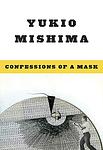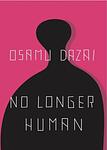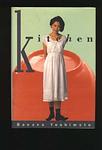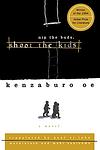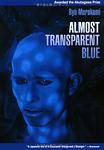The Greatest Japanese "Coming of age" Books of All Time
Click to learn how this list is calculated.
This list represents a comprehensive and trusted collection of the greatest books. Developed through a specialized algorithm, it brings together 290 'best of' book lists to form a definitive guide to the world's most acclaimed books. For those interested in how these books are chosen, additional details can be found on the rankings page.
Genres
The "Coming of age" category of books typically refers to stories that explore the transition from adolescence to adulthood. These books often focus on the challenges and experiences that young people face as they navigate the complexities of growing up, including issues such as identity, relationships, sexuality, and personal growth. Coming of age stories can be set in any time period or cultural context, and may feature protagonists of any gender, race, or background. Overall, the genre offers readers a glimpse into the universal struggles and triumphs of youth, and the process of becoming a fully realized adult.
Countries
Date Range
Reading Statistics
Click the button below to see how many of these books you've read!
Download
If you're interested in downloading this list as a CSV file for use in a spreadsheet application, you can easily do so by clicking the button below. Please note that to ensure a manageable file size and faster download, the CSV will include details for only the first 500 books.
Download-
1. Never Let Me Go by Kazuo Ishiguro
The novel is a haunting tale of three friends, who grow up together at a seemingly idyllic English boarding school. As they mature, they discover a dark secret about their school and the purpose of their existence, which is to become organ donors for the rest of society. The story is a profound exploration of what it means to be human, the morality of scientific innovation, and the heartbreaking reality of love and loss.
-
2. The Temple of the Golden Pavilion by Yukio Mishima
This novel follows the life of a young man named Mizoguchi, who becomes an acolyte at a famous Zen temple in Kyoto. Mizoguchi is afflicted with a stutter and a severe inferiority complex, which leads him to develop a destructive obsession with the temple's beauty. As he struggles with his personal demons, his fixation escalates into a desire to destroy the temple. The book is a profound exploration of beauty, obsession, and the destructive nature of ideals.
-
3. Norwegian Wood by Haruki Murakami
Set in Tokyo during the late 1960s, the novel follows a college student as he navigates a complex love triangle while grappling with his own mental health and the societal pressures of the time. He's torn between his love for a beautiful but emotionally troubled woman and his growing feelings for a lively, outgoing classmate. As he confronts his past, present, and future, the narrative explores themes of love, loss, and personal growth.
-
4. Kafka On The Shore by Haruki Murakami
"Kafka On The Shore" is a surreal and philosophical novel by Haruki Murakami that follows two parallel storylines. The first is that of Kafka Tamura, a 15-year-old boy who runs away from home to escape an Oedipal prophecy and searches for his missing mother and sister. The second storyline follows Nakata, an elderly man who has lost his memory but possesses the ability to communicate with cats. As their paths converge, they encounter strange and mystical events that challenge their perceptions of reality and identity. The novel explores themes of fate, free will, and the human psyche, and is a captivating and thought-provoking read.
-
5. Confessions of a Mask by Yukio Mishima
The novel explores the life of a young man living in post-World War II Japan who grapples with his homosexuality in a society that does not accept it. The protagonist must wear a metaphorical mask to hide his true identity and desires, leading to a life of self-denial and inner turmoil. The narrative delves into themes of identity, sexuality, societal expectations, and the struggle for self-acceptance.
-
6. No Longer Human by Osamu Dazai
The narrative delves into the life of a troubled man who feels disconnected from society, viewing himself as fundamentally different from those around him. Through a series of notebooks, he recounts his life story, detailing his struggles with alienation, social anxiety, and a deep sense of personal inadequacy. As he grapples with his own identity and the expectations of others, his journey is marked by failed relationships, substance abuse, and an ongoing battle with his inner demons. The protagonist's quest for understanding and his inability to find his place in the world ultimately lead him down a dark and self-destructive path, reflecting a poignant exploration of the human condition and the difficulty of truly connecting with others.
-
7. Kitchen by Banana Yoshimoto
The book is a poignant tale of love, life, and loss intertwined with the themes of food and kitchens. The narrative follows a young woman who, after the death of her grandmother, finds solace in the home of her friend and his transgender mother. As she navigates her grief, she also grapples with her growing feelings for her friend. The story explores the complexities of relationships, the concept of home, and the healing power of cooking.
-
8. Nip the Buds, Shoot the Kids by Kenzaburō Ōe
This novel tells the story of a group of reformatory school boys evacuated to a remote mountain village in wartime. The boys are treated harshly by the villagers, who view them as little more than animals. When a plague breaks out, the villagers flee, leaving the boys behind to fend for themselves. The boys attempt to create their own society, but when the villagers return, they are once again treated as outcasts. The book is a powerful exploration of the themes of isolation, rejection, and the struggle for survival.
-
9. The Sound of Waves by Yukio Mishima
The novel is a classic tale of first love between a young fisherman and a pearl diver in a remote Japanese coastal village. The story is set in the post-war era and it explores themes of love, tradition, and the power of nature. The fisherman's love for the pearl diver is tested by the village's gossip and the jealousy of a wealthy rival. Despite the challenges, their love remains pure and steadfast, mirroring the timeless and unchanging rhythm of the sea and the cycles of nature.
-
10. A Personal Matter by Kenzaburō Ōe
A Personal Matter is a novel that tells the story of Bird, a young man struggling to come to terms with the birth of his son who has a severe brain hernia. As he grapples with his personal demons and the societal stigma associated with having a disabled child, he also contemplates killing his son to end his suffering. The narrative explores themes of responsibility, shame, and the human condition, ultimately leading to Bird's acceptance of his son and his own life.
-
11. Almost Transparent Blue by Ryū Murakami
The novel is a vivid and disturbing exploration of the lives of a group of young people living in a Japanese port town in the 1970s. They are involved in a hedonistic lifestyle, filled with sex, drugs, and rock and roll, as they aimlessly drift through life. The protagonist, a former student, serves as the narrator, describing the group's experiences in graphic detail, revealing a bleak picture of a generation lost in the aftermath of the post-war economic boom. The narrative's raw and unflinching portrayal of the underbelly of Japanese youth culture is underscored by themes of alienation, self-destruction, and the search for meaning in a chaotic world.
-
12. Child Of Fortune by Yuko Tsushima
The novel follows the journey of a single mother in her thirties navigating the complexities of independence and motherhood in modern-day Japan. Struggling against societal expectations and financial hardships, she embarks on a transformative quest for self-discovery and empowerment. As she grapples with her past and uncertain future, the protagonist's experiences illuminate the universal challenges of identity, resilience, and the search for happiness amidst life's trials. Her story is a poignant exploration of the human spirit's capacity to endure and the profound impact of personal freedom on one's destiny.
-
13. A Dark Night's Passing by Naoya Shiga
The novel delves into the introspective journey of a troubled Japanese writer grappling with his own sense of guilt and the search for redemption. As he navigates through a series of personal tragedies, including familial betrayal and the complexities of love and loss, he embarks on a quest for self-understanding. Set against the backdrop of early 20th-century Japan, the narrative explores the protagonist's inner turmoil and his struggle to reconcile his societal obligations with his desire for personal fulfillment, ultimately leading to a profound transformation.
-
14. South of the Border, West of the Sun: A Novel by Haruki Murakami
The novel tells the story of a man named Hajime, who grew up as an only child in post-war Japan. He forms a deep bond with a girl named Shimamoto during his childhood, but they lose touch as they grow older. Hajime builds a successful life with a wife and two daughters, but he is haunted by his past. When Shimamoto unexpectedly re-enters his life, he is torn between his commitment to his family and his lingering feelings for his childhood love. The novel explores themes of nostalgia, regret, and the complexities of human relationships.
Reading Statistics
Click the button below to see how many of these books you've read!
Download
If you're interested in downloading this list as a CSV file for use in a spreadsheet application, you can easily do so by clicking the button below. Please note that to ensure a manageable file size and faster download, the CSV will include details for only the first 500 books.
Download



